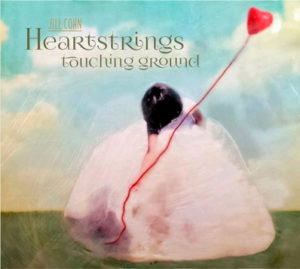By Martha Quillen
For years now, the media and Pew Research reports have indicated Americans are growing increasingly partisan, which is generally characterized as a bad thing, and has been credited with spurring extremism, gridlock, Congressional ineffectiveness and politically motivated violence. But what shocks me in recent years is not the national news; it’s how much vitriol is making its way into our local newspaper.
For me, the most troubling aspect of our increasingly divided society is that public hostility isn’t merely national and directed at power brokers. It’s directed at pretty much everyone: immigrants, Southerners, neighbors, Muslims, blacks, transsexuals, gays, refugees, church-goers, secularists, the old, young, needy, and ordinary local citizens with divergent viewpoints about growth, development, trees, parks and festivals.
When it comes to anger, our cup runneth over.
Yet during our last Salida elections, pretty much every candidate agreed that our town still retains a Mayberry-like essence and is a marvelous place to live. So if our actual circumstances don’t account for local political animosity, what does?
Recently, it occurred to me that most modern political fights are not really about issues. In fact, the majority of long-standing political battles seem to be about something far more basic. Whether the topic is local or national, the underlying issue is usually about who counts. And who doesn’t.
Abortion? Immigration? Gay marriage? Gun control? Those issues all reflect a basic conundrum: Who decides what, for whom?
So hallelujah! I am relieved. If we are courting civil war, as sometimes seems to be the case, it is actually about something important. Or at least in my view the people’s control over their own beliefs, social lives, sex lives, birth control, and treatment from their government and fellow citizens is crucial.
No matter who you are, if you feel you are being discounted, belittled, taken advantage of, or that your quality of life has been seriously diminished by your neighbors or your government, you have every right to speak out. In fact, you may even have an obligation to speak out.
But that’s where democratic governance gets sticky, because Americans often try to control what their fellow citizens can think and say. And we likewise display a strong inclination for determining how others should conduct their personal lives.
If you’re thinking, “Not me, I’m a highly tolerant civil libertarian,” reconsider. How would you feel about a white supremacist sharing his opinions about blacks and Jews with his middle school classmates? How do you feel about door to door proselytizing? Polygamists? The Koch brothers? Or people who disparage religion or doubt the accuracy of climate science?
Regardless of political persuasion, pretty much everybody has ideas about how other people should behave and what they should think. That’s only human. But today, instead of relying on persuasion and evidence to convince others, people often resort to legislation, lawsuits, name-calling, and the systematic suppression of one another’s liberties.
Yes, you can vote if you can find a polling place (many of which we’ve closed) and have a driver’s license (which you likely don’t have now that you’re 95). And yes, you can have your day in court, if you can afford it.
In the 21st century, denying citizens their rights and privileges is a more common American standard than fairness. Yep, it’s right up there with condoning torture and pulling people over for driving black.
[InContentAdTwo]
In a recent With Friends like These podcast, host Ana Marie Cox interviewed Christian Picciolini, who helps white supremacists leave their hate behind. Picciolini made it amply clear why lecturing, shunning and shaming extremists for their beliefs doesn’t make a difference. But Cox kept trying to talk him into the idea that you have to at least tell them how you feel about them and how wrong they are. And she even expressed doubts about whether it was okay for him to be friendly to Nazis.
Cox hosts an interesting podcast, but sometimes her missionary zeal makes her step on the people she’s interviewing. Picciolini, however, displayed extraordinary patience, probably because he ordinarily deals with dangerous extremists rather than overzealous do-gooders.
A former white nationalist himself, Picciolini maintains young people join skinhead groups due to trauma and because they’re looking for acceptance. He says he was a lost and lonely kid when he joined a skinhead group at fourteen. By sixteen he was a leader, but he left at twenty-two, a move he credits to meeting compassionate people he’d hitherto vowed to hate. Picciolini subsequently authored a book, Romantic Violence: Memories of an American Skinhead, and co-founded Life After Hate, an organization dedicated to helping people leave extremist groups.
In an interview conducted by NPR after Charlottesville, he said “people become radicalized, or extremist, because they’re searching for three very fundamental human needs: identity, community and a sense of purpose.”
Most people, including Cox (as she admitted on the show) realize that lectures and ultimatums seldom bring delinquents back into the fold. Yet we persist in trying to quell rebellion by displaying our righteousness, anger and non-existent authority. And this, I think, is where Americans go wrong. We are trying to shun, shame, legislate, blame and lecture people out of hating us. But we are offering them no real place or purpose in our culture.
In the 1950s and ’60s, the United States was home to a hopeful, albeit naive, movement for equality, integration, peace, love and fairness. But somewhere along the way the dream went sour. Violence intruded. Medgar Evers, Robert Kennedy, Martin Luther King and many others were murdered. Violent factions emerged: the Weather Underground, Black Panthers, Symbionese Liberation Army.
Yet awareness was expanded and opportunities were born.
But then we lost our way. Americans began an era of reform with an integration movement meant to end institutionalized hate and violence against blacks, but blacks are still endangered. And as for women? Native Americans? And other minorities?
Originally, equity was the principal goal of the 1960s protest movements. But by the 1970s, movements glorified employment over family, love and personal lives, and activists promoted leadership, upward mobility and higher wages as objectives, while ostracizing empathy, emotionalism, homemaking skills and manual labor.
In essence, minorities were taught how to dress, talk and think like mainstream white professionals. And all of the traits and talents that women and other minorities had that weren’t regarded as masculine and businesslike were spurned. And as for jobs that didn’t demand a patina of mainstream affectations? They were classified as unskilled, and have remained grievously unappreciated and underpaid to this day.
So here we are, a population that has to lean in, work harder and compete more for less and less recompense as the years go by – just to climb a ladder that seldom leads to any glass ceiling. And in terms of equality? Americans have fallen behind, and the gap between rich and poor just keeps widening.
Now more and more Americans are disillusioned and feel they are failing, which is contributing to violence, depression and “deaths of despair,” referring to the rising mortality rates among middle-aged white Americans.
But our leaders usually seem more concerned about budgets and opponents than about people, and all too often blame citizens for high health care costs and sluggish economic growth.
Sometimes political rhetoric gets so mean it seems as if our cultural war just might turn into a real one. Americans clearly need a change. But this time around let’s try to establish reforms that are for the people, meaning all of the people, because simply dividing into feuding factions that look out for their own interests has made America into a nation that’s more for sale than for people.
Martha Quillen lives in Salida with three cats and a family of deer, who’ve apparently decided to stay.



